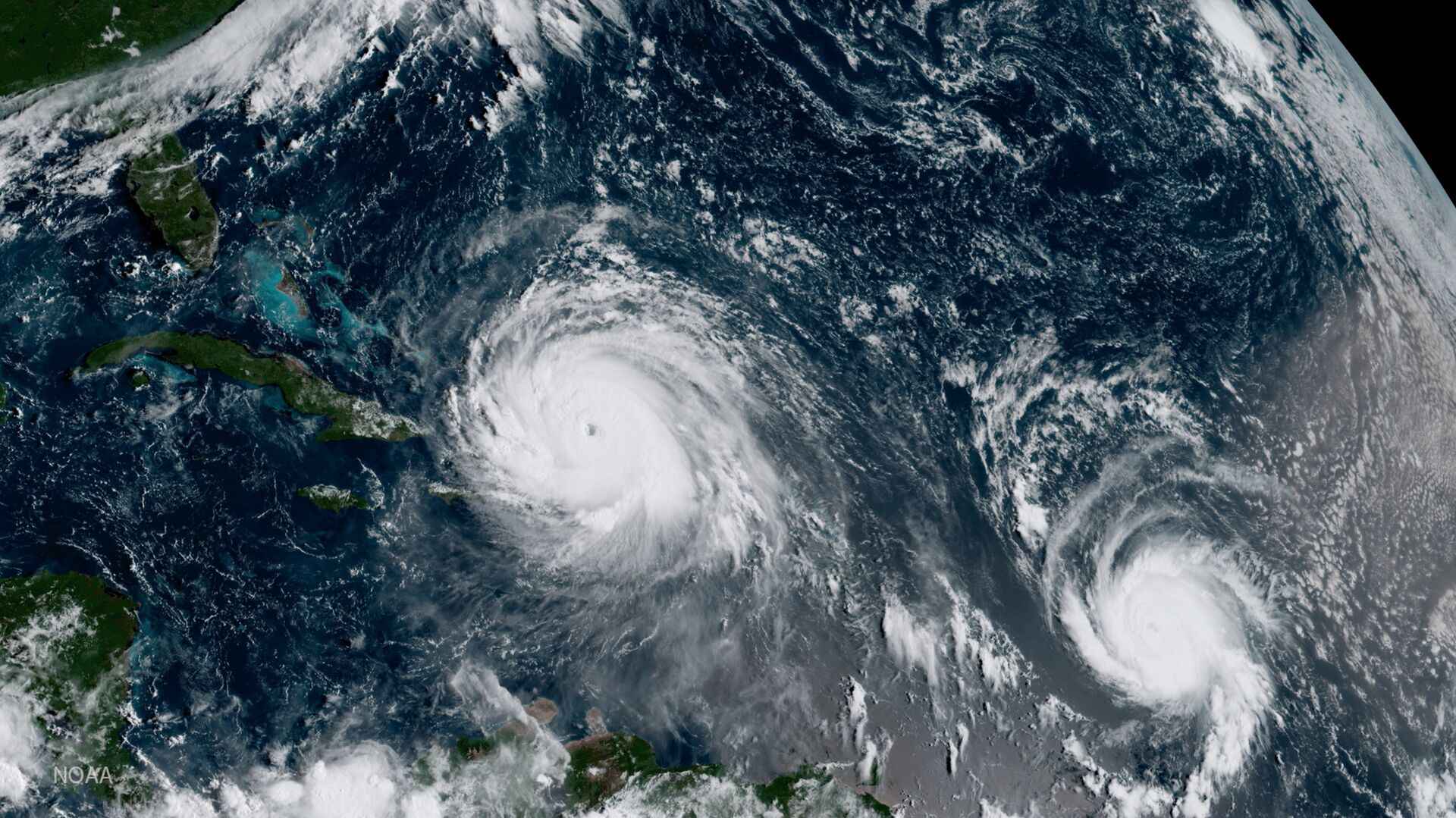https://sputnikglobe.com/20231002/scientists-claim-conclusive-unambiguous-proof-of-gulf-stream-weakening-1113867025.html
Scientists Claim ‘Conclusive, Unambiguous’ Proof of Gulf Stream Weakening
Scientists Claim ‘Conclusive, Unambiguous’ Proof of Gulf Stream Weakening
Sputnik International
A group of oceanographers tracking one of the world’s most powerful ocean currents have arrived at a startling conclusion: that current, which helps keep Europe temperate in spite of its northerly latitudes, is weakening.
2023-10-02T20:29+0000
2023-10-02T20:29+0000
2023-10-02T20:26+0000
world
woods hole oceanographic institution
atlantic ocean
climate change
gulf stream
science & tech
geophysical research letters
https://cdn1.img.sputnikglobe.com/img/105722/34/1057223401_0:0:4250:2390_1920x0_80_0_0_4420d60fa8795f5258b3e152fc9ac6f4.jpg
Lisa Beal of the University of Miami’s Rosenstiel School of Marine and Atmospheric Science and Christopher G. Piecuch from the Physical Oceanography Department at Woods Hole Oceanographic Institution in Massachusetts, described their conclusion in an article that was recently published in Geophysical Research Letters, a peer-reviewed journal by the American Geophysical Union.The powerful current flows from the Gulf of Mexico through the Straits of Florida, up the eastern coast of North America and across the Atlantic Ocean to the British Isles, carrying heat to the northerly latitudes that helps to keep a temperate climate in Canada’s maritimes and in Western Europe, despite their northerly latitudes, which in other parts of the planet can have subarctic temperatures.The study was based on data collected by undersea cables, satellite altimetry, and in situ observations, which were fed into a Bayesian model, which uses probability to represent uncertainty. The researchers noted that omitting any one of the data sets failed to change the final conclusion, further strengthening their analysis.A weakening of global climate-influencing currents like the Gulf Stream has long been predicted as a possible outcome of a changing global climate. However, the scientists are careful to note their study does not attempt to explain the reasons behind the change, only to accurately document it is happening."While we can definitively say this weakening is happening, we are unable to say to what extent it is related to climate change or whether it is a natural variation," Piecuch said. "We can see similar weakening indicated in climate models, but for this paper we were not able to put together the observational evidence that would really allow us to pinpoint the cause of the observed decline."Because the Gulf Stream channels heat away from the tropics and toward colder parts of the world, it is an important mechanism for balancing global temperatures. A weaker Gulf Stream can mean hotter tropics and a colder Europe.
https://sputnikglobe.com/20230725/crucial-atlantic-ocean-current-at-risk-of-collapsing-by-2025-study-warns-1112145530.html
https://sputnikglobe.com/20221205/mystery-of-history-what-happened-to-the-lost-patrol-in-the-bermuda-triangle-77-years-ago-1105073181.html
atlantic ocean
gulf stream
Sputnik International
feedback@sputniknews.com
+74956456601
MIA „Rosiya Segodnya“
2023
News
en_EN
Sputnik International
feedback@sputniknews.com
+74956456601
MIA „Rosiya Segodnya“
Sputnik International
feedback@sputniknews.com
+74956456601
MIA „Rosiya Segodnya“
gulf stream weakening; oceanography; climate change
gulf stream weakening; oceanography; climate change
Scientists Claim ‘Conclusive, Unambiguous’ Proof of Gulf Stream Weakening
A group of oceanographers tracking one of the world’s most powerful and important ocean currents have arrived at a startling conclusion: that current, which helps to keep Europe temperate in spite of its northerly latitudes, is weakening.
Lisa Beal of the University of Miami’s Rosenstiel School of Marine and Atmospheric Science and Christopher G. Piecuch from the Physical Oceanography Department at Woods Hole Oceanographic Institution in Massachusetts, described their conclusion in an article that was
recently published in Geophysical Research Letters, a peer-reviewed journal by the American Geophysical Union.
"We conclude with a high degree of confidence that Gulf Stream transport has indeed slowed by about 4% in the past 40 years, the first conclusive, unambiguous observational evidence that this ocean current has undergone significant change in the recent past," they wrote.
The powerful current flows from the Gulf of Mexico through the Straits of Florida, up the eastern coast of North America and across the Atlantic Ocean to the British Isles, carrying heat to the northerly latitudes that helps to keep a temperate climate in Canada’s maritimes and in Western Europe, despite their northerly latitudes, which in other parts of the planet can have subarctic temperatures.
The study was based on data collected by undersea cables, satellite altimetry, and in situ observations, which were fed into a Bayesian model, which uses probability to represent uncertainty. The researchers noted that omitting any one of the data sets failed to change the final conclusion, further strengthening their analysis.
"When you are making your case, you need more than one witness, and you ideally want a collection of independent witnesses whose statements - when taken together - paint a consistent and coherent story," Piecuch said.
A weakening of global climate-influencing currents like the Gulf Stream has long been predicted as a possible outcome of a changing global climate. However, the scientists are careful to note their study does not attempt to explain the reasons behind the change, only to accurately document it is happening.

5 December 2022, 16:39 GMT
"While we can definitively say this weakening is happening, we are unable to say to what extent it is related to climate change or whether it is a natural variation," Piecuch said. "We can see similar weakening indicated in climate models, but for this paper we were not able to put together the observational evidence that would really allow us to pinpoint the cause of the observed decline."
"The Gulf Stream is a vital artery of the ocean's circulation, and so the ramifications of its weakening are global," Beal noted. "I think there is potential for this technique to extract other climate change signals from among the scattered observations we have in the ocean."
Because the Gulf Stream channels heat away from the tropics and toward colder parts of the world, it is an important mechanism for balancing global temperatures. A weaker Gulf Stream can mean hotter tropics and a colder Europe.






